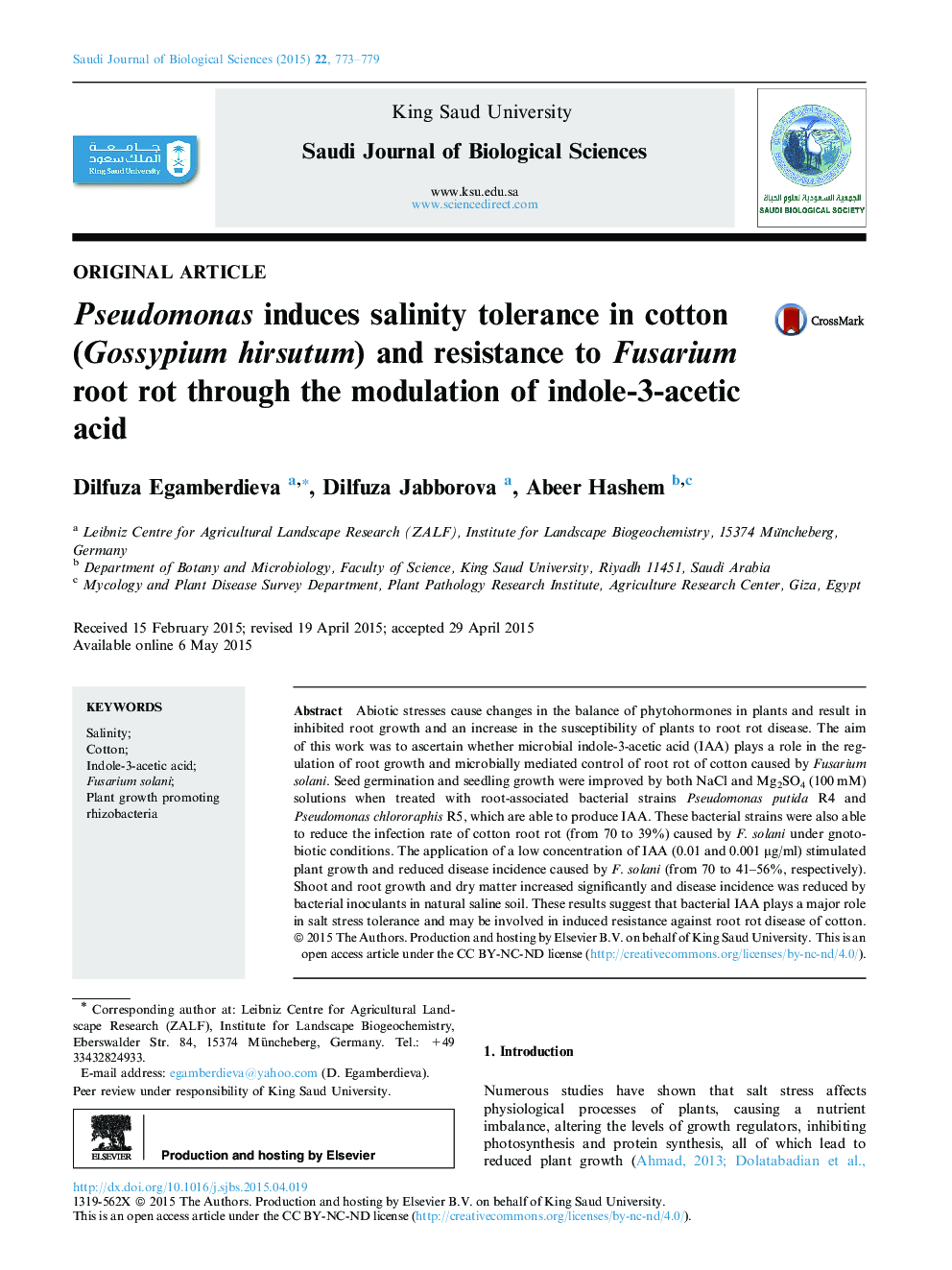| کد مقاله | کد نشریه | سال انتشار | مقاله انگلیسی | نسخه تمام متن |
|---|---|---|---|---|
| 4406299 | 1618676 | 2015 | 7 صفحه PDF | دانلود رایگان |

Abiotic stresses cause changes in the balance of phytohormones in plants and result in inhibited root growth and an increase in the susceptibility of plants to root rot disease. The aim of this work was to ascertain whether microbial indole-3-acetic acid (IAA) plays a role in the regulation of root growth and microbially mediated control of root rot of cotton caused by Fusarium solani. Seed germination and seedling growth were improved by both NaCl and Mg2SO4 (100 mM) solutions when treated with root-associated bacterial strains Pseudomonas putida R4 and Pseudomonas chlororaphis R5, which are able to produce IAA. These bacterial strains were also able to reduce the infection rate of cotton root rot (from 70 to 39%) caused by F. solani under gnotobiotic conditions. The application of a low concentration of IAA (0.01 and 0.001 μg/ml) stimulated plant growth and reduced disease incidence caused by F. solani (from 70 to 41–56%, respectively). Shoot and root growth and dry matter increased significantly and disease incidence was reduced by bacterial inoculants in natural saline soil. These results suggest that bacterial IAA plays a major role in salt stress tolerance and may be involved in induced resistance against root rot disease of cotton.
Journal: Saudi Journal of Biological Sciences - Volume 22, Issue 6, November 2015, Pages 773–779